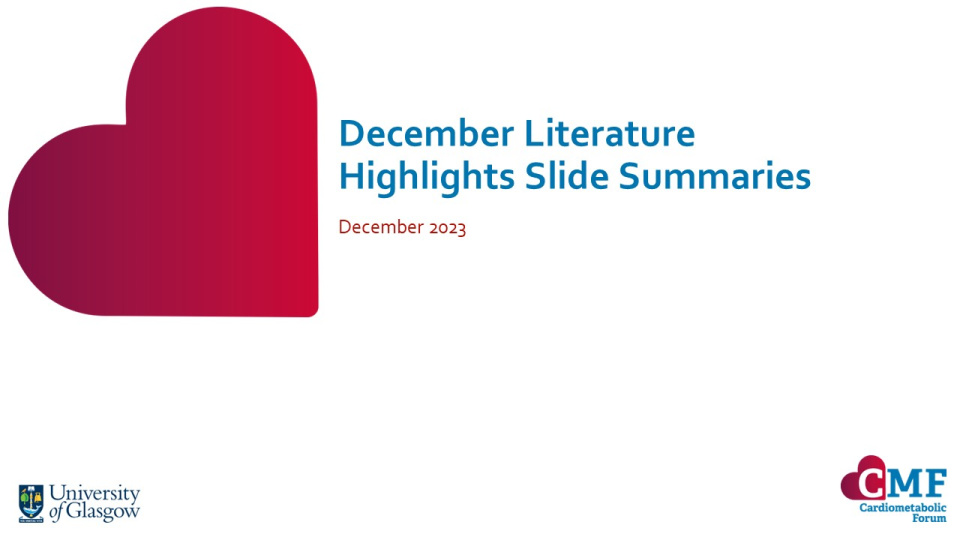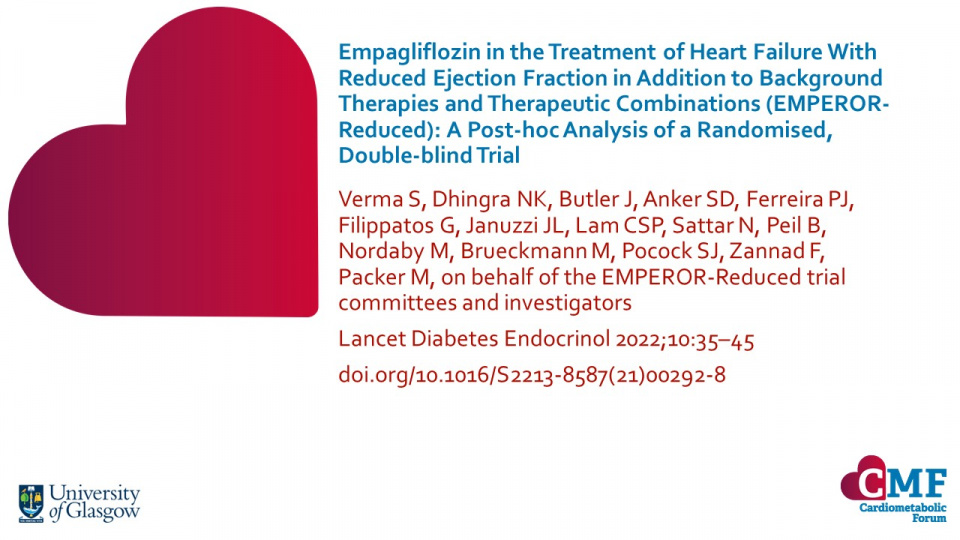Publications
Stay up to date with our literature reviews which are curated by experts to feature the most important publications released each month. Explore our publications for access to concise summary slides for your own use.
March 2022
Empagliflozin in the Treatment of Heart Failure With Reduced Ejection Fraction in Addition to Background Therapies and Therapeutic Combinations (EMPEROR-Reduced): A Post-hoc Analysis of a Randomised, Double-blind Trial
Lancet Diabetes Endocrinol 2022;10:35–45 doi.org/10.1016/S2213-8587(21)00292-8
The data from the trial suggests that empagliflozin may be considered as a foundational therapy in heart failure with reduced ejection fraction. This post-hoc analysis of EMPEROR-Reduced – a randomised, double-blind, parallel-group trial – by Verma et al. evaluated the efficacy and safety of empagliflozin in patients with heart failure with reduced ejection fraction and to baseline treatment.


